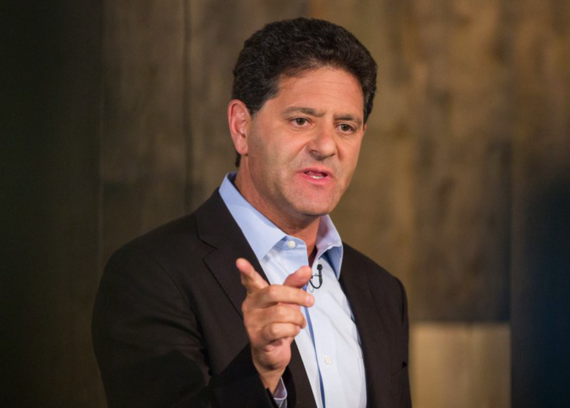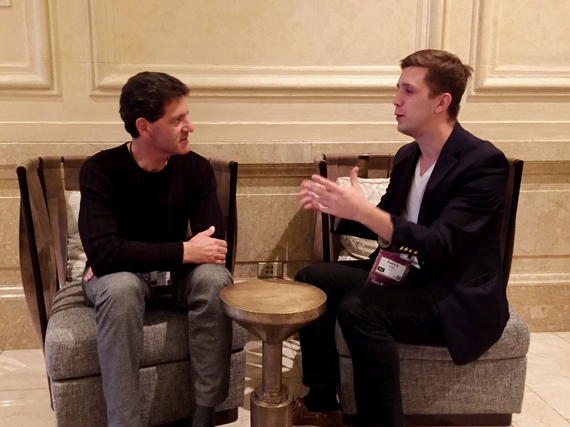Photo Credit: TEDSalon NY2014
At O'Reilly's Next:Economy conference in San Francisco, the venture capitalist talks about the value of studying philosophy, his investment strategy and how to think independently.
Nick Hanauer is a co-founder and partner in Seattle-based venture capital firm, Second Avenue Partners. He has managed, founded and financed over thirty companies, creating aggregate market value of tens of billions of dollars. For example, he co-founded aQuantive, which sold to Microsoft for $6.4 billion, and was the first non-family investor in Amazon.
He also serves as a Director for The Democracy Alliance and as a board advisor to the policy journal Democracy. He has a degree in philosophy from the University of Washington, is married with two children and lives in Seattle, Washington.
What did you learn from studying philosophy?
How to analyze things. How to think carefully about complicated things is what you learn. How to deconstruct ideas and arguments and distinguish between things that are true and those that are bullshit.
How did you learn to think independently?
Thinking critically and thinking independently are different. The ability to think independently is a psychological trait, not an intellectual trait. Some people are comfortable running against the grain and most people are not. This is something that I don't know where it comes from. Maybe you are born with it, or your parents give it to you. The ability to think independently is not correlated to IQ.
What kind of advice would you give to your younger self?
Don't be such an asshole.
What is the best advice you ever received?
It is not what you do but what you choose not to do that ofen makes the difference.
What is your investment philosophy?
I look for businesses that have created a product or service that delivers what I call transformational value, which means that it is ten times better than the alternative or 1/10th the price of the alternative, while being of the same quality. Some massive differential in the quality or price versus its competitors that makes it one of those things that would be indispensable in the lives of those who bought it. I believe that all great enterprises start that way. One day one it created that kind of transformation.
How do you curate information and make sure you don't get flooded with too much information?
Twitter is a good tool. I have a small number of people that I follow that I respect. Some of the things I read include Scientific American, The New York Times, Science and The Atlantic.
How do you take different insights that help you inform your investment philosophy?
Having a broad perspective is really helpful. I try to have a lot of perspective. I take science very seriously. That can have a huge impact on how you think about investing. I have a degree in philosophy and my main interest was the philosophy of art and aesthetics. That informs life in a way.
What makes you more effective when you set a goal?
Persistence and trying to think about the problem objectively and strategically.
What kind advice would you give millennials to find their purpose?
To the greatest extent possible devote yourself to things which make your community better. There really is a difference in working for a company that cures cancer and one that creates cancer, even if they pay you the same amount, or even if the companies are of equal size. These moral decisions are very important that people should take them very seriously.
What is one of your favorite books?
Eric Beinhocker's The Origin of Wealth.


